About Landmark Recovery of Boston
Based in Concord, Massachusetts, Landmark Recovery of Boston is a drug rehab center that provides support to adults aged 18 and older. Private health insurance is accepted along with self-pay options. Payment assistance is available to those eligible.
Drug Detox and Inpatient Rehab
You can experience safe, supervised detox services, with a dedicated team on hand to help you safely manage those uncomfortable withdrawal symptoms. You may then transition to inpatient rehab programming, where you can expect 24/7 supervision and regular therapy sessions, including family therapy.
With a capacity of 111 beds, the facility has recently undergone a great deal of upgrades and renovations. These include kitchen and bathroom improvements, new decking, a new fire alarm system, and a fresh coat of paint. You really will see the difference.
As for the length of your inpatient stay, this can last anywhere from 28 to 35 days. The program itself maintains a trauma-focused approach, accounting for the link between trauma and addiction. In this way, the team seeks to resolve any underlying issues that may be contributing to or exacerbating your ongoing substance abuse issues. Expect to attend roughly six hours of group therapy each week, with individual therapy taking place once a week and family visits on the weekends.
Outpatient Support and Clinical Programming
The highest level of outpatient care available here is a partial hospitalization program (PHP), followed by an intensive outpatient program (IOP) and standard outpatient care. On the IOP, participants can expect 9-20 hours of therapy and skill-building sessions.
Aftercare support is also provided and includes therapy, educational sessions, support group meetings, and monitoring to stay on top of potential relapse episodes.
Rehab Score
Gallery
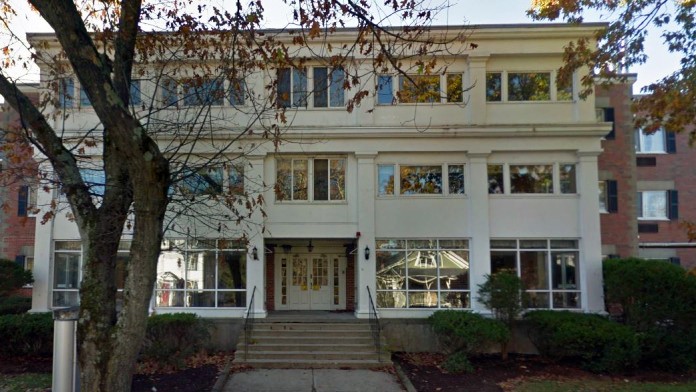
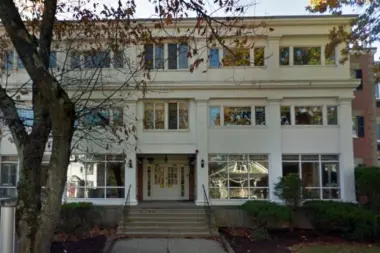
Other Forms of Payment
Self-pay involves paying for treatment out of your own pocket. You can use savings or credit, get a personal loan, or receive help from family and friends to fund your treatment. If you don't have insurance or your insurance plan doesn't cover a specific program, self-pay can help ensure you still get the care you need.
Private insurance refers to any kind of healthcare coverage that isn't from the state or federal government. This includes individual and family plans offered by an employer or purchased from the Insurance Marketplace. Every plan will have different requirements and out of pocket costs so be sure to get the full details before you start treatment.
Addiction Treatments
Levels of Care
Outpatient programs are designed for clients who are medically stable and not at an elevated risk of relapse, including those who have already completed inpatient care. Outpatient programs typically advance clients' established treatment plans, offering continuing addiction counseling and recovery education. Clients who enter outpatient care immediately following detox may also receive medical and mental health assessments and personalized treatment plans. Most outpatient rehabs provide multiple levels of care to align with clients' unique needs.
Residential treatment programs are those that offer housing and meals in addition to substance abuse treatment. Rehab facilities that offer residential treatment allow patients to focus solely on recovery, in an environment totally separate from their lives. Some rehab centers specialize in short-term residential treatment (a few days to a week or two), while others solely provide treatment on a long-term basis (several weeks to months). Some offer both, and tailor treatment to the patient's individual requirements.
Recovery models based on 12 step programs feature extensive peer coaching and emphasize personal growth as a key to sustained sobriety. Regular attendance at 12 step meetings, which are anonymous, free, and available daily, is expected. The 12 steps of recovery are based on spiritual principles and support participants in addressing the root causes of their disease, accept responsibility for their choices, and accept that which is beyond their control. Self-selected sponsors provide one-one-mentoring.
A partial hospitalization program (PHP) is a short-term form of intensive rehab, usually for those with acute symptoms that are hard to manage but don’t require 24-hour care. PHPs have structured programming (i.e. individual and/or group therapy), and usually meet 3-5 days a week for around 6 hours (i.e. 9am-3m). Some PHPs are residential (patients sleep on site) and some are not, so patients sleep at home. PHPs can last from 1-6 months, and some offer transportation and meals.
Drug and alcohol addiction often takes a heavy toll on one's body. Over time, a physical dependence can develop, meaning the body physiologically needs the substance to function. Detox is the process of removing drugs and/or alcohol from the body, a process that can be lethal if mismanaged. Medical detox is done by licensed medical professionals who monitor vital signs and keep you safe, healthy, and as comfortable as possible as you go through detox and withdrawal. The length of stay at the detoxification program is determined according to the specific needs of the patient.
Treatments
Substance rehabs focus on helping individuals recover from substance abuse, including alcohol and drug addiction (both illegal and prescription drugs). They often include the opportunity to engage in both individual as well as group therapy.
Programs
Adult rehab programs include therapies tailored to each client's specific needs, goals, and recovery progress. They are tailored to the specific challenges adult clients may face, including family and work pressures and commitments. From inpatient and residential treatment to various levels of outpatient services, there are many options available. Some facilities also help adults work through co-occurring conditions, like anxiety, that can accompany addiction.
Clinical Services
Group therapy is any therapeutic work that happens in a group (not one-on-one). There are a number of different group therapy modalities, including support groups, experiential therapy, psycho-education, and more. Group therapy involves treatment as well as processing interaction between group members.
In individual therapy, a patient meets one-on-one with a trained psychologist or counselor. Therapy is a pivotal part of effective substance abuse treatment, as it often covers root causes of addiction, including challenges faced by the patient in their social, family, and work/school life.
Staff & Accreditations
Staff

Matt Boyle
Co-Founder & CEO
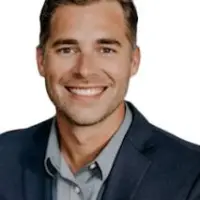
AJ Henry
COO
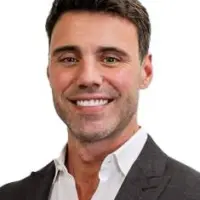
Matthew DiGiacobbe
CFO
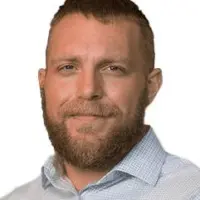
Dr. Jason Kirby
Chief Medical Officer

Justin Hartman
Chief Revenue Officer
Accreditations

The Joint Commission, formerly known as JCAHO, is a nonprofit organization that accredits rehab organizations and programs. Founded in 1951, the Joint Commision's mission is to improve the quality of patient care and demonstrating the quality of patient care.
Joint Commission Accreditation: Yes
Contact Information
785 Main St.
Concord, MA 01742